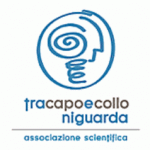Tinnitus (or tinnitus) are sounds perceived by patients but not in ’ environment. Their nature can relate to organic diseases (Otosclerosis, acoustic trauma, dell ’ VII acoustic nerve neurinoma, sudden hearing loss, hearing loss ototoxic agents, neurological diseases …) or, in most cases, from an unidentifiable cause.
Tinnitus involve a large number of subjects (until 15-18% of the population), may be constant or intermittent, unilateral or bilateral.
L ’ Tinnitus can be acute or severe tone, mild or very high. Can be very annoying, especially in quiet environments, situation in which it is perceived more.
Tinnitus sufferers know how this disorder can be a real handicap, making it difficult to sleep, increasing the State ’ anxiety and stress.
When evaluating ORL is essential to assess whether l ’ Tinnitus can have an organic cause or less, Once satisfied that the tinnitus is idiopathic ’ (do not have a known cause) The patient must understand that tinnitus is a nuisance (also important) but it is not and must not represent a health problem.
At the present time there is no treatment that can erase completely l ’ tinnitus. There is a wide spectrum of useful therapies to reduce the perceived intensity ’ and disability caused by tinnitus ’.
Drug treatments are available that psychological/neurophysiological approaches
No therapy has proven to be more effective and therefore requires that l ’ Otolaryngologist affronts with the patient the problem, trying to figure out if there is a substantial share of anxiety/stress to act upon pharmacologically or whether it should try to cognitive-psychological-neurophysiological techniques.
A very useful technique to minimize the perception of tinnitus is ’ l’sound enrichment and together with the Tinnitus Retraining Therapy specialist consultation falls within the.
Anyone suffering from tinnitus realizes that it is easier to fall asleep (and not perceiving l ’ tinnitus) If in the room there is an innocuous background noise such as television or radio at low volume.
Our brain is conscious that the noise (television or radio) who is coming to our ear is harmless and so tends to exclude it.
L ’ tinnitus is interpreted by our brain as an abnormal sound, possible alarm bell about some problem that creates a State of anxiety. L ’ attention to focus on ’ tinnitus, especially in silence and it accentuates the perceived intensity of the same ’ l creating a vicious circle.
L ’ sound enrichment is a neurophysiological technique that arises l ’ objective of teaching to our brain that tinnitus is a ’ sound harmless to ignore.
The technique is to make the patient a harmless sound at low volume throughout the night and at any moment of silence. The sound doesn't have to have sudden changes in intensity and must cover all audible frequencies, l ’ intensity should be low, barely perceptible.
L ’ ideal is then a white noise that stimulates all audible frequencies, perceived as a rustle.
You can download from HERE an mp3 file that has a white noise ’ now (Click with the right button, then save as), You'll have to put more copies on your player to cover all night.
To increase the effectiveness of the file ’ can be shaped on the basis of ’ hearing screening of each patient: the sound apparently identical to white noise, will stimulate only frequencies not affected by tinnitus ’.
Sounds can be heard with speakers or with headphones.
During the day you can listen to the radio or music at a volume very low









